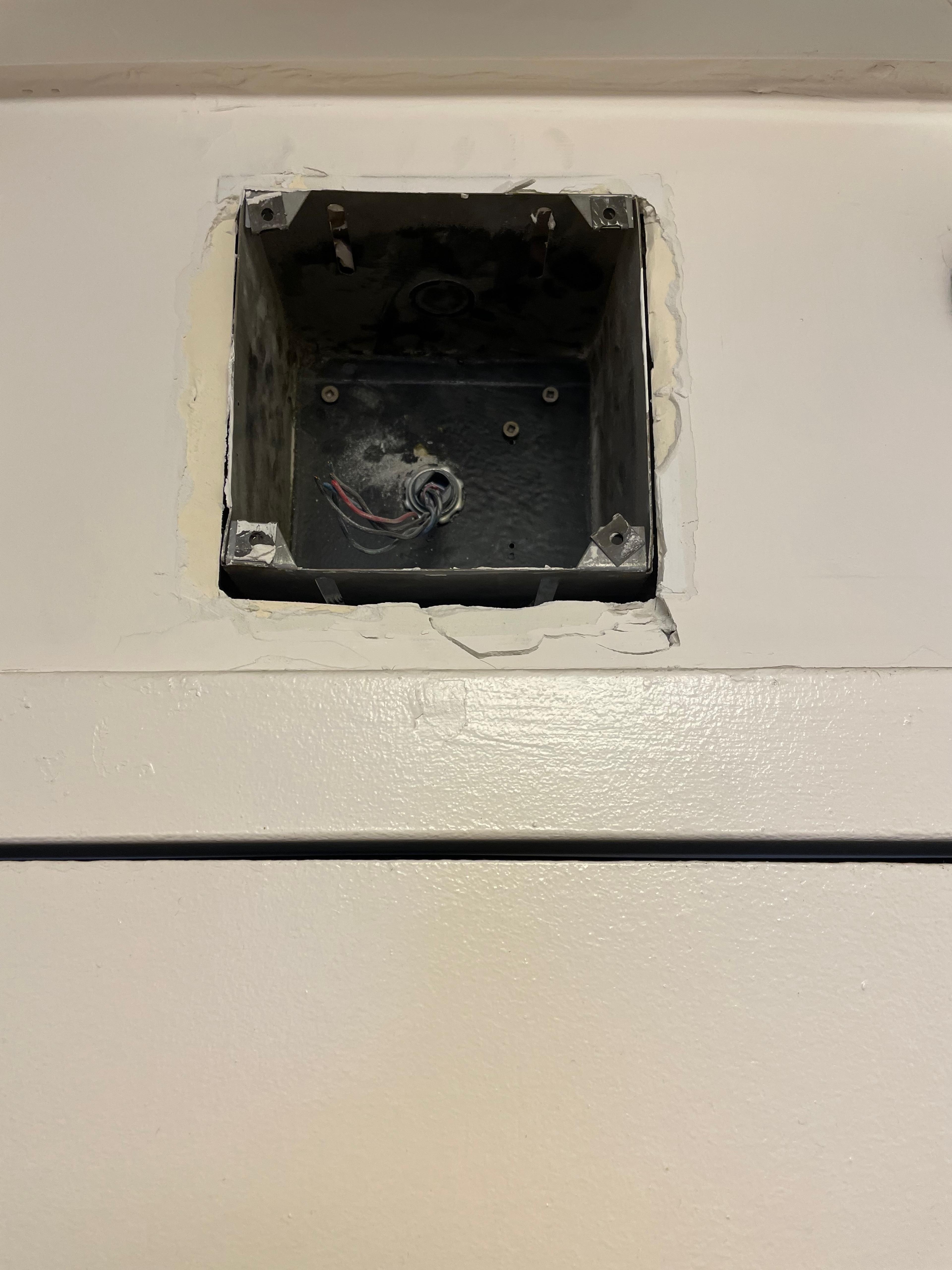Alarm inspection in Building B: Numerous Errors
On Monday, March 11, 2024, at 9:45 a.m., Minto sent an email titled "Notice of Entry" to the residents of Building B, announcing the intention to access each apartment for a period of 11 days (March 11 to March 22), from 8 a.m. to 4 p.m., to perform a "Verification Inspection ULC-537 of the newly installed fire alarm system". The Civil Code states that:
« 1931. The lessor is bound, except in case of emergency, to give the lessee a prior notice of 24 hours of his intention to ascertain the condition of the dwelling, to carry out work in the dwelling or to have it visited by a prospective acquirer.
Not only was this deadline not met, but the notice had even been sent after the start of the period indicated in the message.
The CLR contacted the administration and its provider "Priority Fire Protection Inc." about this irregularity.
Shortly after, at 11:41 a.m., Minto sent a second notice stating that the work would instead begin the next day at 8 a.m. This second notice did not comply with the 24-hour notice required by law either, as it was sent with less than 24 hours' notice and starting at 8 a.m. Moreover, the Civil Code also stipulates that a check should not take place before 9 a.m.:
« 1932. The lessee may, except in case of emergency, refuse to allow the dwelling to be visited by a prospective lessee or acquirer before 9 a.m. or after 9 p.m.; the same rule applies where the lessor wishes to ascertain the condition of the dwelling.
In addition to the lack of notice and the failure to respect the acceptable hours for this type of activity, the 10-day period claimed during which Minto demands the right to visit is excessive. It is established in practice and jurisprudence that the date of visit corresponds to a specific day. This is demonstrated by the judgments of the TAL, which order access for verification on a specific date and for a few hours' duration. A request for a visit over such a long period is clearly excessive. Otherwise, a landlord could simply notify tenants at the beginning of the year of the intention to make visits at times of the year, and do without further communications, which is clearly unreasonable.
After denouncing this second message, the administration indicated to the CLR that they had sent the first notice by mistake, and were unable to plan which floors would be done at what time, which seems quite astonishing since it was a simple check.
Following this discussion, a member of the CLR volunteered to receive the team first at 8 a.m. The next day, the supplier's team arrived 30 minutes late, and without supervision by a Minto project manager to witness it. After conducting a sound check, a technician took the liberty of removing and taking away the old speaker that was no longer in use, creating a large hole above the door, with exposed electrical wires. Although this equipment was no longer used to announce the alarm, it still constitutes part of the wall, which is now open. However, the law provides that the lessor does not have the right to take something from the home without permission of the person:
« 8. No one may enter upon the property of another or take anything therefrom without his express or implied consent.
(“Charter of Human Rights and Freedoms”)
And as the judge mentions in Ropars v. Kalenso Inc. by Gestion S.I.B. Inc, 2016:
"This behavior of the landlord is reprehensible and constitutes an illicit infringement, namely a violation of domicile, of their private life, and of the integrity of their dwelling, in the sense of articles 5 to 8 of the Charter of Human Rights and Freedoms. This infringement commands the application of the sanction provided for in article 49, which is the granting of punitive damages."
Furthermore, the team was not able to say when this damage would be repaired, giving the impression that, when preparing this operation the administration had not thought that they needed to plan how they were going to repair the holes left in all the apartments.
While the team was in the other apartments on the floor, the alarm started ringing again in all the apartments for more than two hours, while the administration had not had the courtesy to explain that the inspection would involve a constant noise for a period of two hours.
The next day (Wednesday, March 13), the supplier's team was authorized to perform a test of the integration of the alarm system with the elevator control, to force the recall during a fire. It was therefore known that this test would interrupt elevator service, which is critical for residents of a 20-story tower. Minto did not seem to understand the nature of the test because the manager tried to assert that the interruption only affected elevator 2 and was unpredictable, going so far as to contradict tenants who reported that they were unable to call an elevator to their floor because the call button was non-functional. However, the technicians from the supplier explained that the shutdown was the purpose of the test, but that an error had resulted in their inability to restore the elevators to working order for 90 minutes.
- The administration must take note of the errors and incorporate these lessons:
- Send the notice while respecting the 24-hour notice period.
- Be aware that email notifications might not be received or not received on time; it's more convenient but less reliable.
- Provide a specific date (and a general time indication if possible).
- For an inspection visit, respect legal hours (not before 9 am).
- Obtain explicit or implicit permission to enter the apartment:
- For a single apartment, ensure to obtain explicit permission.
- For multiple apartments, give a reasonable opportunity for tenants to object if they have a problem; for example, if the notice is sent a week in advance, the administration can ask those with a problem to contact the administration, while reminding them of the landlords' rights.
- If items need to be removed, or minor work carried out, indicate this and provide information, to be sure of having permission; this also changes the permitted hours (7 am to 7 pm).
- If it results in a reduction of the enjoyment of the apartment, for example by creating a hole or other damage, have a clear plan to reassure the tenant that the damage will be repaired within a reasonable timeframe.
- Establish a schedule for the day; the Minto project manager ensures that the team starts on time and meets with the team once the work is completed:
- If all the work planned for the day is completed, the team stops for the day
- Minto pays for the hours worked not for the whole day;
- another possibility: Minto pays per day, but if the work is not completed there are penalties for the supplier;
- Minto is a company significant enough in the field that it should be able to negotiate one of these agreements with suppliers and thus not suffer financially while improving tenant satisfaction and avoiding legal risk.
- If the planned work is not finished, we can reschedule the remaining work and send a notice (respecting the 24-hour rule); for example the appartments that were not done that day can be scheduled for the end of the work period thereby limiting the impact on the rest of the plan while respecting the notice period
- Never announce visits with a blank check for several days; no one does that, and tenants can refuse.
- If all the work planned for the day is completed, the team stops for the day
- If an interruption of an essential service such as elevators, electricity, hot water, etc., is anticipated, include this aspect in the notice. Perform tests of new equipment at a time chosen to minimize impacts, for example, early in the morning e.g., 2 am or 3 am, which gives time to deal with any unforeseen issues.
- Have documentation of best project management practices; train the team and conduct a review after each significant operation to reinforce the lessons and find other relevant improvements.
- Send the notice while respecting the 24-hour notice period.
- What to do for the inspection/extraction from March 12 to 22:
- Send a communication including apologies and a summary of the lessons learned.
- Indicate when the damage caused by the visit (hole above the door) will be repaired.
The holes in the walls left by the removal of the old speakers remain wide open, three months later, with no plan to fill them. This constitutes a violation of housing sanitation and provides an easy entry point for insects.


